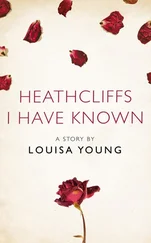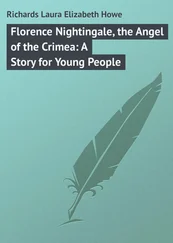Florence Young - Coelebs - The Love Story of a Bachelor
Здесь есть возможность читать онлайн «Florence Young - Coelebs - The Love Story of a Bachelor» — ознакомительный отрывок электронной книги совершенно бесплатно, а после прочтения отрывка купить полную версию. В некоторых случаях можно слушать аудио, скачать через торрент в формате fb2 и присутствует краткое содержание. Жанр: Зарубежные любовные романы, foreign_prose, foreign_language, на английском языке. Описание произведения, (предисловие) а так же отзывы посетителей доступны на портале библиотеки ЛибКат.
- Название:Coelebs: The Love Story of a Bachelor
- Автор:
- Жанр:
- Год:неизвестен
- ISBN:нет данных
- Рейтинг книги:4 / 5. Голосов: 1
-
Избранное:Добавить в избранное
- Отзывы:
-
Ваша оценка:
- 80
- 1
- 2
- 3
- 4
- 5
Coelebs: The Love Story of a Bachelor: краткое содержание, описание и аннотация
Предлагаем к чтению аннотацию, описание, краткое содержание или предисловие (зависит от того, что написал сам автор книги «Coelebs: The Love Story of a Bachelor»). Если вы не нашли необходимую информацию о книге — напишите в комментариях, мы постараемся отыскать её.
Coelebs: The Love Story of a Bachelor — читать онлайн ознакомительный отрывок
Ниже представлен текст книги, разбитый по страницам. Система сохранения места последней прочитанной страницы, позволяет с удобством читать онлайн бесплатно книгу «Coelebs: The Love Story of a Bachelor», без необходимости каждый раз заново искать на чём Вы остановились. Поставьте закладку, и сможете в любой момент перейти на страницу, на которой закончили чтение.
Интервал:
Закладка:
The married state was not in John Musgrave’s opinion at all a desirable condition. He had never considered it for himself. He did not dislike women, but in all the forty years of his life he had never been in love, never met a woman the glance of whose eye had quickened his pulses or moved him to any deeper sentiment than a momentary interest. He was afraid of women. For the past ten years he had spent much of his time avoiding them. Women with marriageable daughters sought him continually, and made their pursuit so obvious as to fill him with grave embarrassment. He realised so well that he was not a marrying man that he could not understand why they failed to see this also.
It was a little indelicate, he considered, that any mother should try to secure a husband for her daughter. That a woman should seek to secure a husband for herself occurred to him a greater indelicacy still. John Musgrave had had the appalling experience of a written offer of marriage. He had replied to the writer courteously, and had promptly burnt the letter. He would have liked to have burnt the recollection of it, had that been possible; but unfortunately the foolish sentiment of that ill-considered letter remained in his memory, a constant and distressful humiliation, which was rendered the more disconcerting because he was continually and unavoidably brought into contact with the writer. She lived within a quarter of a mile of his own gates, and busied herself actively in the parish. John Musgrave also busied himself in the parish. To have thrown up this work, which he regarded as a duty of the head of his house, would have been impossible to him. Therefore he braced himself to meet this woman on school-boards and committees and other local interests, and tried to appear unconscious, when he encountered her, of a matter that always jumped into his mind whenever he saw her thin, eager face, or listened to the insistent tones of her reed-like voice, which made itself constantly heard at any public gathering.
John Musgrave was not thinking of this lady as he sat at breakfast and poured himself out a cup of coffee from the old-fashioned urn that had graced the table every morning within his memory; but the return of Eliza, like an austere Flora, whose sour visage showed above a basket of hot-house fruits hiding shyly beneath a profusion of wax-like blossoms, brought her promptly and most unpleasantly to his mind. Only one person in Moresby could send him such a gift. He turned purple in the face when he beheld this dainty offering of fruit and flowers, and spluttered with rage as he waved their approach aside.
“Take away that – that rubbish,” he commanded fiercely. “How dare you bring it in here!”
Eliza stared at him resentfully. She did not show surprise, because that was an emotion she seldom displayed, but she disapproved highly of his tone.
“I did not know what else to do with it, sir,” she answered.
“No, no; of course not.” John Musgrave seized an egg, and decapitated it with a shaking hand. “Take it with you, please,” he said, in a mollified voice.
“Oh, thank you, sir,” Eliza murmured, with a twist of her thin lips which was the only trick of smiling they knew.
He turned in his seat and stared at her fixedly.
“Tell Martha from me,” he said curtly, “to throw that litter on the fire. I don’t like cut flowers, and I do not eat fruit. If – if anything else of the kind arrives, do not take it in.”
Eliza carried the rejected offering with her to the kitchen, where Martha and the chauffeur lingered over a late breakfast, and simperingly displayed the gift which she bore in the angular crook of her arm.
“The master gave them to me,” she announced, with the conscious intonation of one marked out for especial favour.
The chauffeur was in the act of drinking coffee, but something went wrong with his throat at this moment, and Eliza, who was fastidious, turned aside from the unpleasant spectacle he presented, and buried her nose in the flowers. Martha good-naturedly thumped him on the back.
“Oh Lord?” he gasped. “Oh Lord?”
“I don’t wonder,” Martha ejaculated, with a contemptuous glance at the respectable Eliza, who was engaged in examining the contents of her basket. “That gipsy fortune-teller has turned her ’ead, poor thing!”
“There go all my ’opes,” said the mendacious chauffeur, pointing to the dark stains of spilled coffee as though they symbolised his aspirations. “Strike me blue mouldy! if I don’t go out and cut my bloomin’ throat. If you don’t want me to commit sooicide, Lizer, share round those plums.”
Generosity was not catalogued among Eliza’s undoubted qualities. She took from the depths of the basket two of the smallest peaches, and placing these on the table, retired promptly from the kitchen, bearing her treasure with her.
“Mean, I call it,” cried the indignant chauffeur after her retreating back. “One measly peach in return for a broken ’eart. If you’d given me ’alf a dozen I’d ’ave kissed you.”
Martha laughed comfortably.
“If you aren’t careful, she’ll ’ave you up for breach of promise,” she said.
“She’d lose the day,” the chauffeur answered confidently. “A jury would only ’ave to look at ’er to know no man would ’ave ’ad the pluck to ’ave done it.”
Martha laughed again.
“That gipsy woman got a shilling out of ’er,” she remarked, “for telling ’er she was going to marry a gentleman. She believes it, silly thing!”
“She’s as likely to marry a gentleman as anyone,” the chauffeur answered. “Marriages are made in heaven, I’ve heard; and that’s where Lizer’ll ’ave to go to find ’er man. But the governor didn’t ought to play with ’er young and untried affections. Givin’ ’er presents like that.”
Martha rose deliberately, pushing back her chair. She had been in John Musgrave’s service for over twenty years, and therefore spoke as one having authority.
“’E give ’em to ’er most likely to throw in the ashbin,” she said. “A silly like Lizer would believe anything.”
Nevertheless Martha was not happy in her mind in regard to that basket of hot-house produce. She experienced a strong curiosity to learn where it had come from, and why it had been sent, and rejected by the recipient. Only a rooted objection to question Eliza on intimate family matters restrained her curiosity sufficiently to prevent her from discussing the subject with her fellow-servant. Martha, as the back-stairs custodian of the family honour, could not permit herself to gossip with the housemaid about John Musgrave’s affairs.
Chapter Two
The Rev. Walter Errol stood in the vestry doorway and watched, as he had watched for many years, his departing congregation. It was a large congregation, disproportionately large, considering the size of the parish. It was drawn mainly from the neighbouring parish of Rushleigh, which was a big town compared with Moresby. But the incumbent of Moresby was an eloquent preacher, and the Rushleigh inhabitants found that the two-mile walk across the fields was well repaid in the satisfaction of hearing the message they desired to hear presented to them in a manner which was interesting as well as instructive, and more effective on this account. A message, whether beautiful or the reverse, has a greater hold on the imagination when effectively presented.
The flock of the Rev. Walter Errol never went away empty. There was always something in what he said to appeal to each individual member of the congregation, and so much that was novel and enlightened in his discourse that the thinker and the scholar found food for speculation, as well as the careless youth of the parish, who wandered into the church as a matter of course or from curiosity, and returned again and again because what they heard there was bright and stimulating and arresting, and gave them a sense of their own importance and responsibility in life, as well as a more beautiful conception of life itself.
Читать дальшеИнтервал:
Закладка:
Похожие книги на «Coelebs: The Love Story of a Bachelor»
Представляем Вашему вниманию похожие книги на «Coelebs: The Love Story of a Bachelor» списком для выбора. Мы отобрали схожую по названию и смыслу литературу в надежде предоставить читателям больше вариантов отыскать новые, интересные, ещё непрочитанные произведения.
Обсуждение, отзывы о книге «Coelebs: The Love Story of a Bachelor» и просто собственные мнения читателей. Оставьте ваши комментарии, напишите, что Вы думаете о произведении, его смысле или главных героях. Укажите что конкретно понравилось, а что нет, и почему Вы так считаете.












